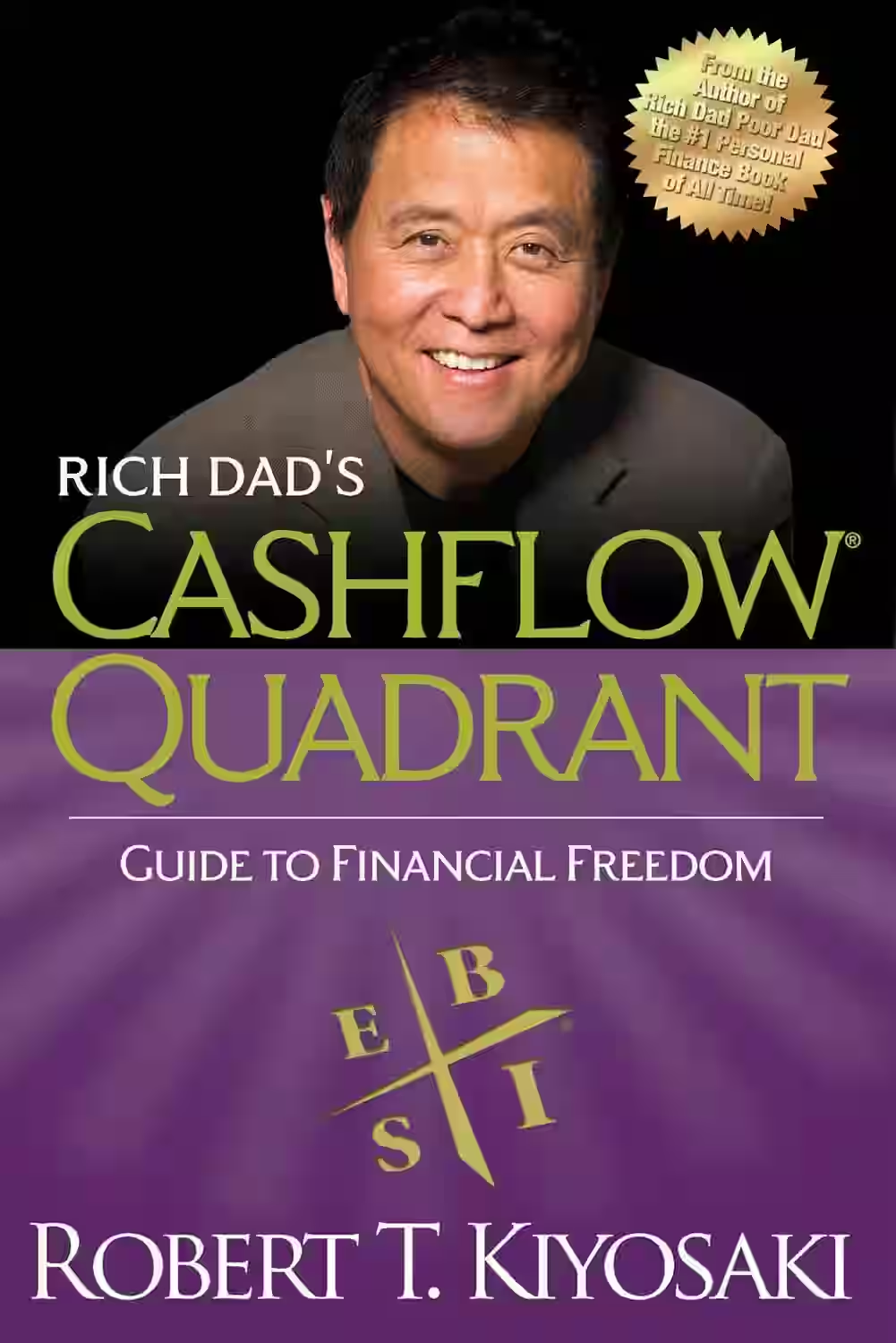
In 'Cashflow Quadrant', Robert T. Kiyosaki delves into the world of financial independence through the lens of four quadrants - Employee, Self-Employed, Business Owner, and Investor. Through insightful anecdotes and practical advice, Kiyosaki emphasizes the importance of moving from the left side of the quadrant (Employee and Self-Employed) to the right side (Business Owner and Investor) to achieve true wealth and financial freedom. He highlights the mindset shifts and financial strategies needed to transition between quadrants, encouraging readers to rethink their approach to money and work. This book serves as a roadmap for those seeking to break free from traditional employment and create sustainable wealth.
About Robert T. Kiyosaki
Robert T. Kiyosaki, born in 1947 in Hawaii, is a renowned entrepreneur, investor, and author best known for his groundbreaking personal finance book 'Rich Dad Poor Dad.' Kiyosaki's work delves into financial literacy, investment strategies, and achieving financial independence by challenging conventional beliefs about money and wealth. His influential book has been on The New York Times bestsellers list for over six years and has reshaped the way people approach personal finance worldwide. Through his teachings and seminars, Kiyosaki continues to empower individuals to take control of their financial future and build wealth through education and entrepreneurship.
Other Books by Robert T. Kiyosaki

Rich Dad Poor Dad
In 'Rich Dad Poor Dad' by Robert T. Kiyosaki, readers are taken on a transformative journey exploring the stark financial lessons Kiyosaki learned from his two dads - his biological father (Poor Dad) and the father of his best friend (Rich Dad). This personal finance classic delves into the contrasting money philosophies that shaped Kiyosaki's mindset, encouraging readers to rethink their approach to wealth and assets. Through engaging anecdotes and practical advice, the book emphasizes the importance of financial education, investment, and building passive income streams. 'Rich Dad Poor Dad' challenges conventional beliefs about money and has inspired countless readers to take control of their financial futures.
Similar Books
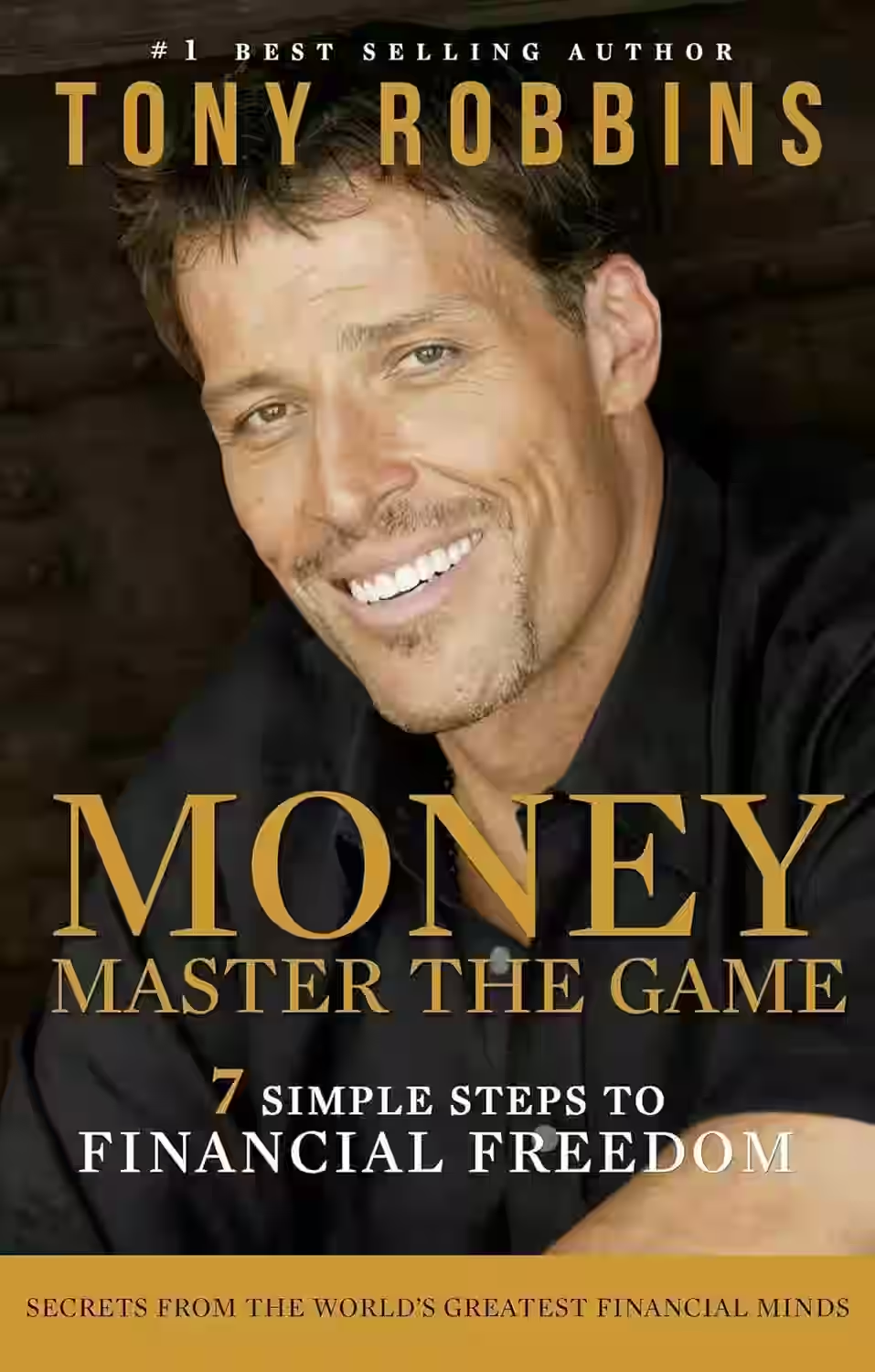
Money: Master the Game
by Tony Robbins
In 'Money: Master the Game,' Tony Robbins delves into the world of personal finance, offering readers a comprehensive guide to achieving financial independence. Through interviews with some of the world's most successful investors and entrepreneurs, Robbins uncovers valuable insights and strategies for managing money wisely, investing effectively, and ultimately mastering the game of wealth. The book covers topics like setting financial goals, creating a diversified investment portfolio, and debunking common myths about money. Robbins' engaging writing style and practical advice make this book a must-read for anyone looking to take control of their financial future.
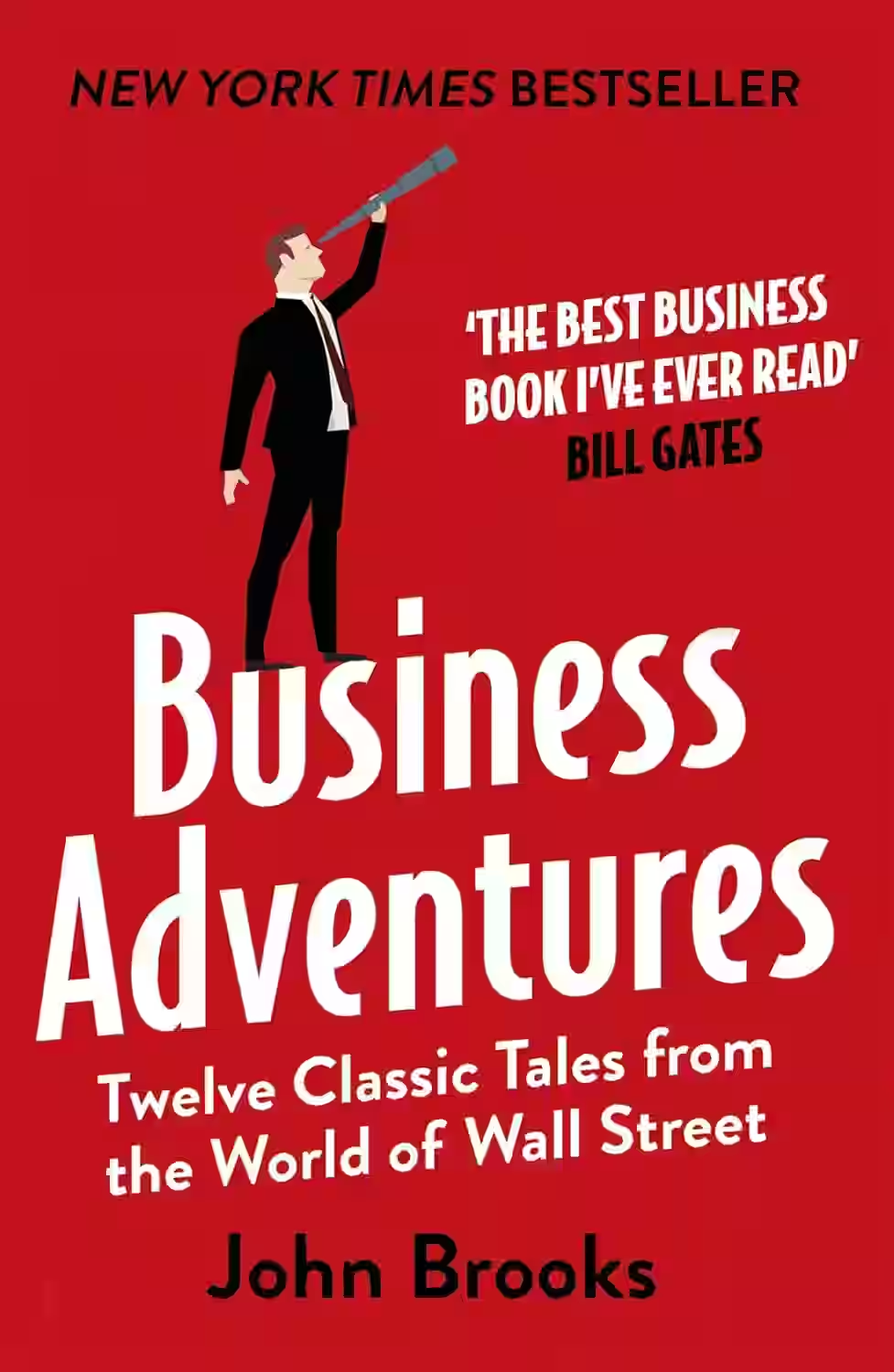
Business Adventures
by John Brooks
In 'Business Adventures,' John Brooks delves into the intriguing world of business through a collection of twelve riveting tales that explore the highs and lows of corporate America. Through detailed narratives of various business events, Brooks sheds light on timeless lessons that remain relevant in today's business landscape. From the rise and fall of giants like Ford and Xerox to the financial intricacies of the stock market crash in 1962, this book offers valuable insights into the essence of entrepreneurship, management, and decision-making. Brooks' storytelling prowess and keen observations make 'Business Adventures' a classic that continues to captivate and educate readers.
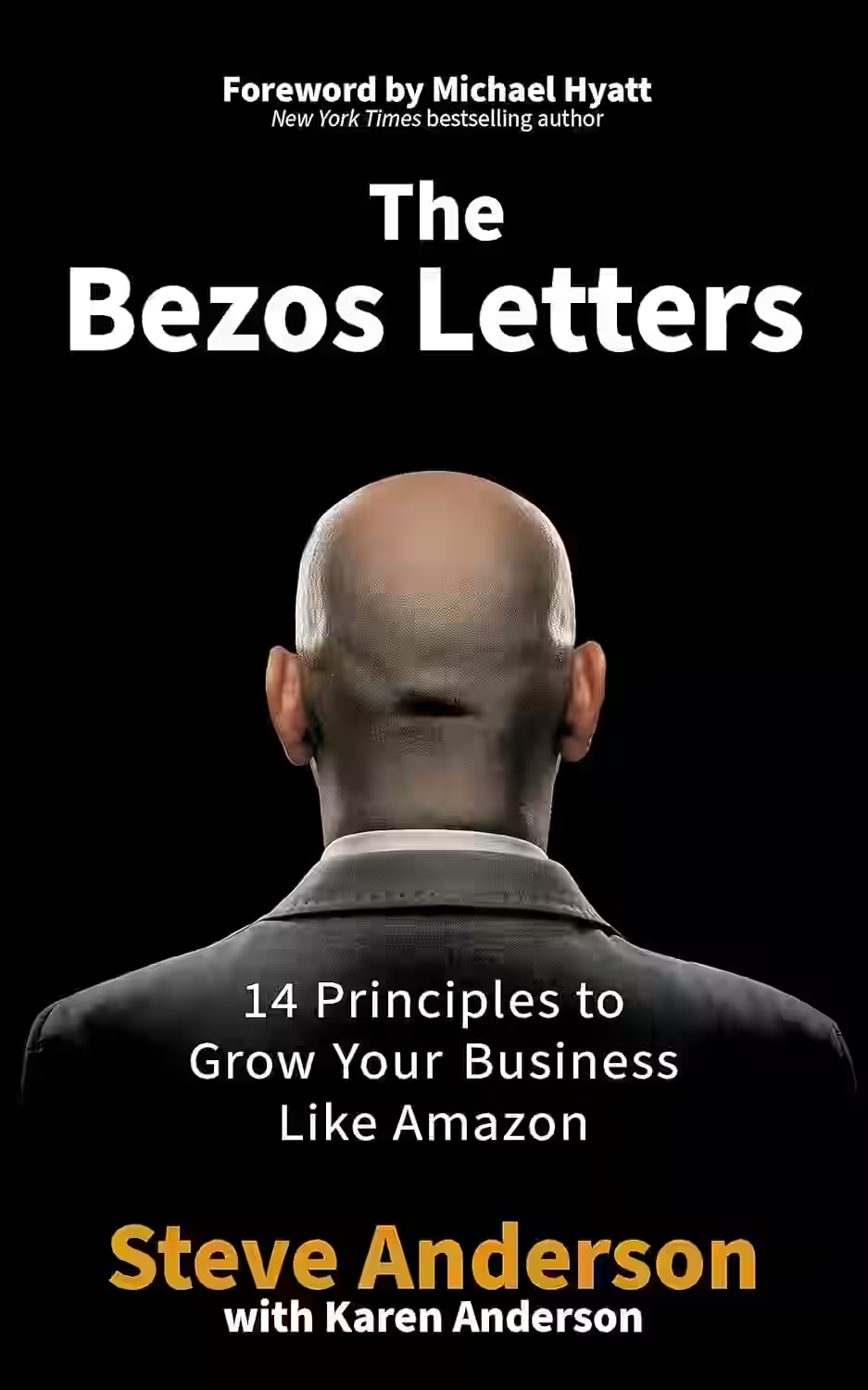
The Bezos Letters: 14 Principles to Grow Your Business Like Amazon
In 'The Bezos Letters: 14 Principles to Grow Your Business Like Amazon' by Steve Anderson, readers delve into the core principles that propelled Amazon to incredible success. The book breaks down Jeff Bezos' annual letters to shareholders over the years, revealing essential business strategies such as customer obsession, embracing failure, and long-term thinking. Anderson expertly distills these principles, providing valuable insights and actionable advice for entrepreneurs and business leaders looking to emulate Amazon's achievements. Through a combination of analysis and real-world examples, this book offers a compelling roadmap for growth and innovation in today's competitive market.
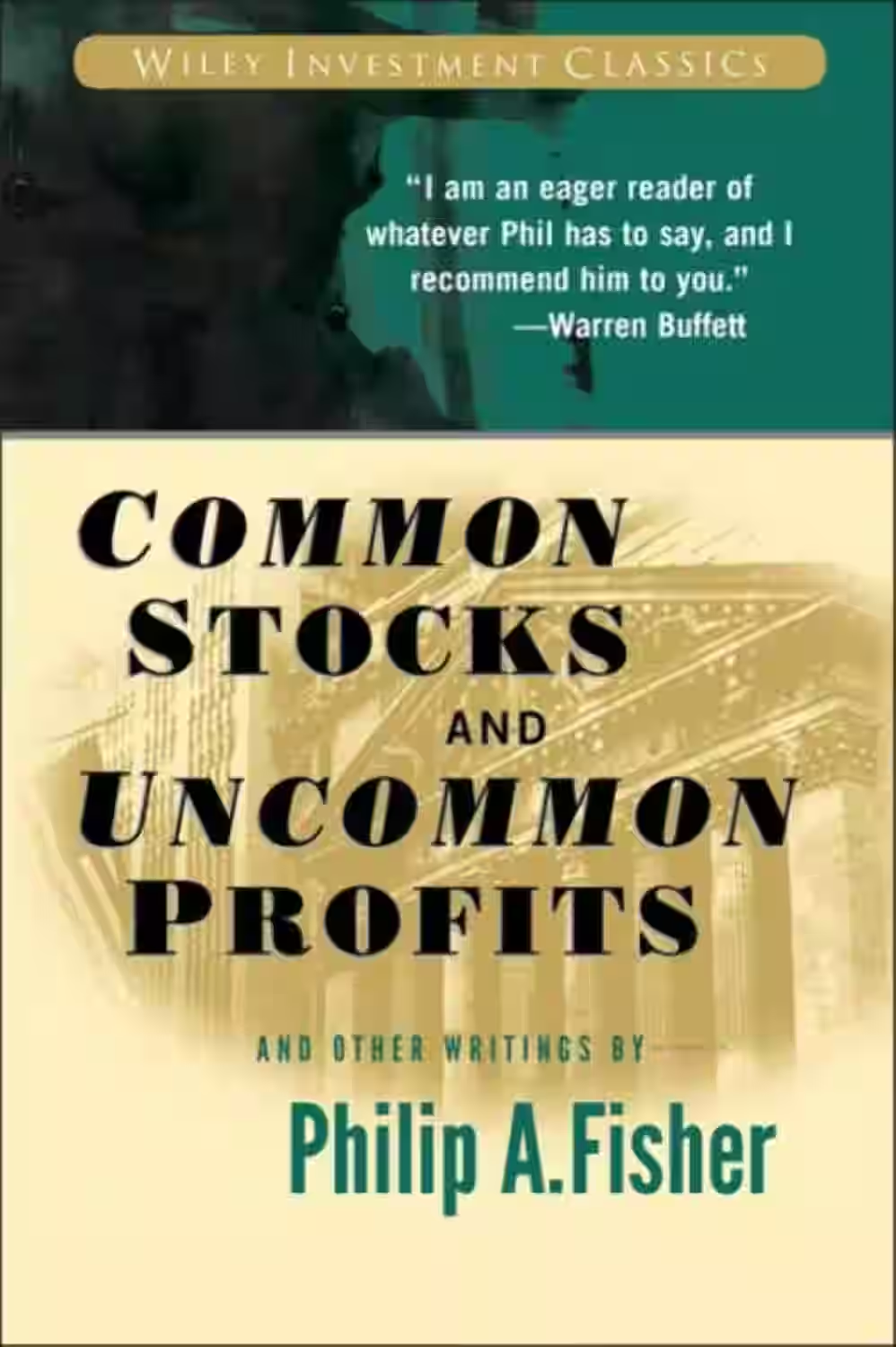
Common Stocks and Uncommon Profits
In 'Common Stocks and Uncommon Profits,' renowned investor Philip Fisher imparts timeless wisdom on stock investing. Fisher champions a long-term, research-intensive approach, emphasizing the importance of thoroughly evaluating a company's management, growth potential, and competitive advantages. Through detailed case studies and insights, he guides readers on how to identify exceptional businesses to invest in. The book highlights the significance of patience, due diligence, and a deep understanding of a company's intrinsic value. Fisher's influential investment principles have shaped the strategies of many successful investors. 'Common Stocks and Uncommon Profits' remains a seminal work that continues to inspire and educate aspiring investors.